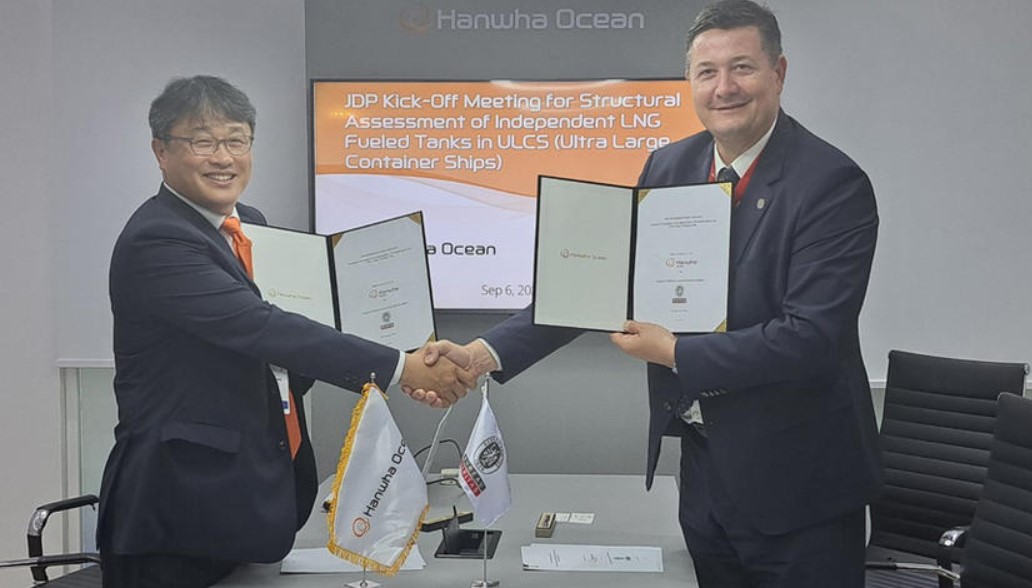South Korean shipbuilder Hanwha Ocean and classification society BV are joining forces on the structural assessment of independent LNG fuel tanks for ultra large container ships.
In that regard, the two firms recently signed a deal for a joint development project (JDP).
According to a statement by BV, the project aims to enhance the design process of independent LNG fuel tanks. It also aims to accelerate the development of new solutions for the structural assessment of those systems.
Today many vessels feature independent tanks, either for LNG/LPG transportation or for the use of LNG/LPG as a fuel.
These independent tanks are not rigidly connected to the hull structure but are instead held by an important number of dedicated supports, which must be designed with consideration of non-linear structural response during operations, including loss of contact and sliding.
Accurately solving these contact nonlinearities usually requires large computational time. BV said the method is very sensitive to convergence parameters.
Moreover, BV recently developed a new methodology to assess contact behaviour nonlinearities.
The method was validated by comparison with simulations, and it was demonstrated that the CPU time is significantly lower, while maintaining the same levels of accuracy, BV said.
The proposed solution allows for the fully consistent structural analysis of vessels equipped with independent tanks, it said.
Hanwha Ocean is currently building twelve ultra-large LNG-powered containerships for Germany’s Hapag-Lloyd.
The shipbuilder recently delivered the second vessel in this batch, the 23,660-teu Manila Express.

